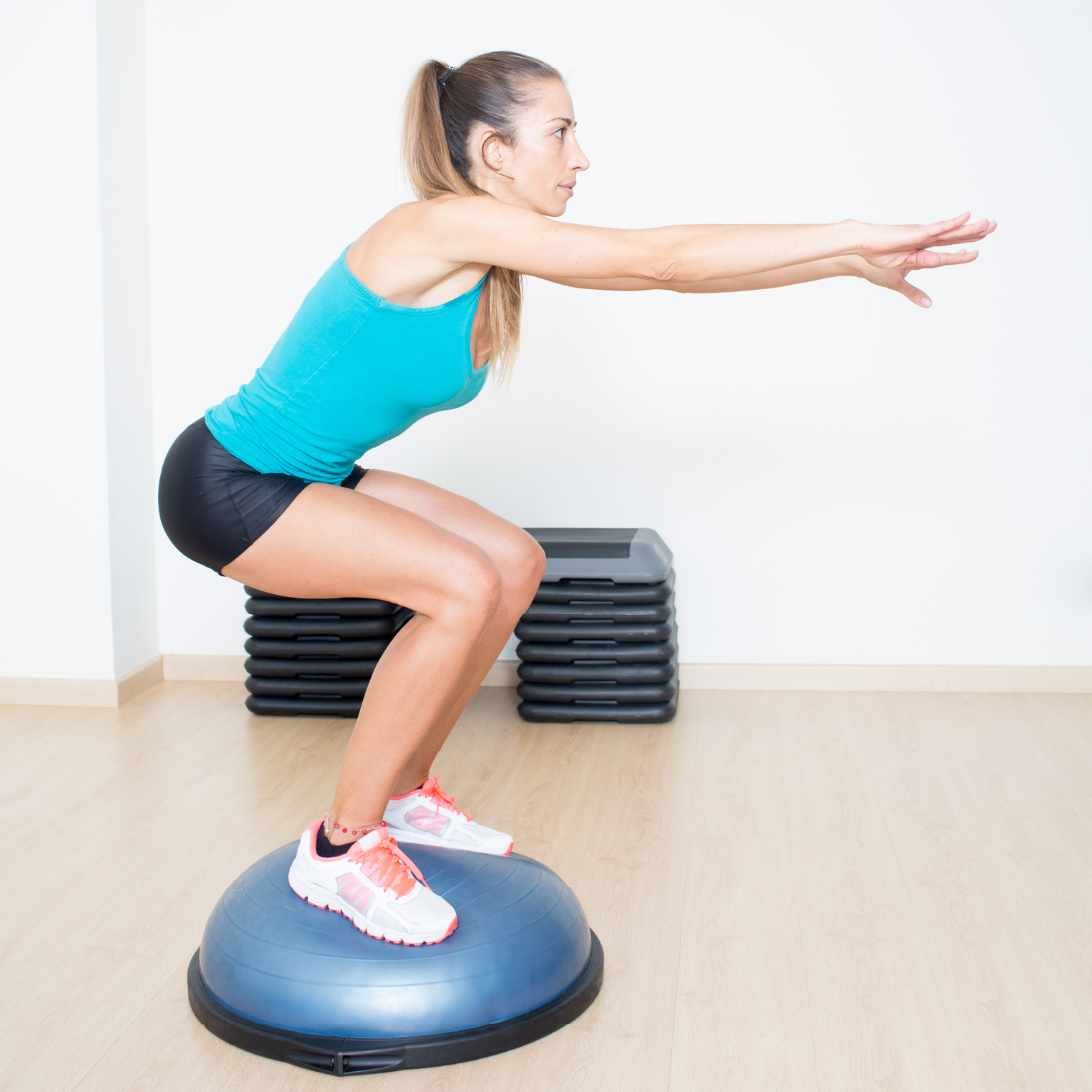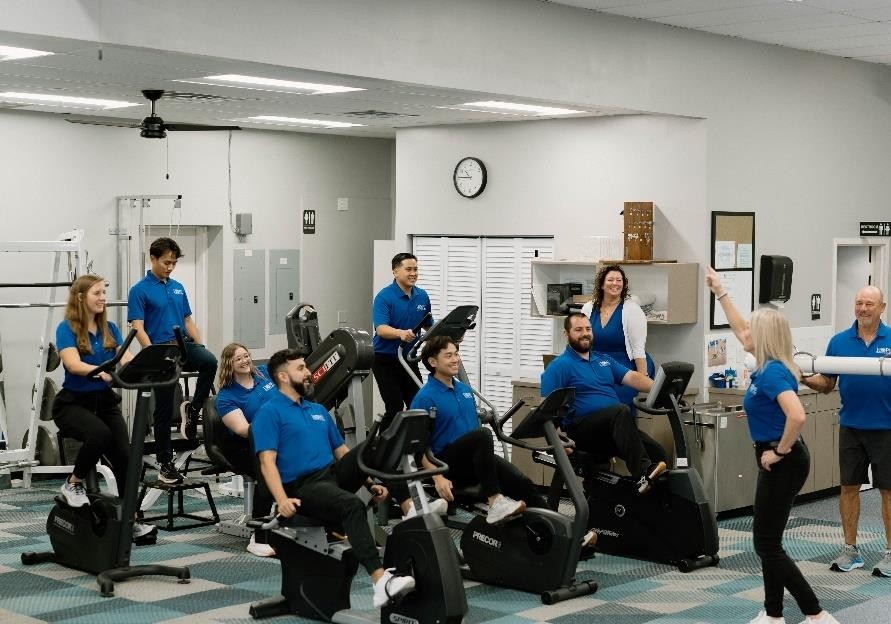Balance Training

What is a balance disorder?
A balance disorder is a condition that makes you feel unsteady or dizzy. If you are standing, sitting, or lying down, you might feel as if you are moving, spinning, or floating. If you are walking, you might suddenly feel as if you are tipping over.
Everyone has a dizzy spell now and then, but the term "dizziness" can mean different things to different people. For one person, dizziness might mean a fleeting feeling of faintness, while for another it could be an intense sensation of spinning (vertigo) that lasts a long time.
Experts believe that more than four out of 10 Americans, sometime in their lives, will experience an episode of dizziness significant enough to send them to a doctor. Balance disorders can be caused by certain health conditions, medications, or a problem in the inner ear or the brain. A balance disorder can profoundly impact daily activities and cause psychological and emotional hardship.
Symptoms of a balance disorder
If you have a balance disorder, you may stagger when you try to walk, or teeter or fall when you try to stand up. You might experience other symptoms such as:
- Dizziness or vertigo (a spinning sensation)
- Falling or feeling as if you are going to fall
- Lightheadedness, faintness, or a floating sensation
- Blurred vision
- Confusion or disorientation.
Other symptoms might include nausea and vomiting, changes in heart rate and blood pressure, and fear, anxiety, or panic. Symptoms may come and go over short time periods or last for a long time, and can lead to fatigue and depression.
Common Diagnoses We Work With
- Central Nervous System Disorders
- Neuropathy
- Age-Related Balance Dysfunction
- Oculomotor (Visual) Dysfunction
- Benign Paroxysmal Positional Vertigo (BPPV)
- Labyrinthitis
- Ménière's Disease
- Vestibular Neuronitis
- Muscle Atrophy
- Nerve Injuries

How Our Physical Therapists Can Help
Physical therapist directed treatment can assist patients with balance disorders in a number of ways. As experts in the evaluation and treatment of movement, muscle, joint, and nervous system disorders, our physical therapists can prescribe and implement a variety of treatments including:
- Coordination Exercises
- Proprioception Exercises
- Strengthening Exercises
- Stretching and Range of Motion Exercises
- Posture Exercises
- Retraining of the Inner Ear
- Visual Tracking Training
Education is Therapy
The most important part of treating a balance disorder is understanding your diagnosis, the cause of the problem, and how to manage it. That's why we place great emphasis on patient education and coordination of care with your referring physician.
Three Additional and Important Treatment Options
Reduce Fall Risk. Your physical therapist will assess problem footwear and hazards in your home that increase your risk of balance problems or falling. Household hazards include loose rugs, poor lighting, unrestrained pets, or other possible obstacles.
Reduce Fear of Falling. By addressing specific problems that are found during the examination, your physical therapist will help you regain confidence in your balance and your ability to move freely, and perform daily activities. As you build confidence in your balance and physical ability, you will be better able to enjoy your normal daily activities.
Care Collaboration. Working in collaboration with your medical doctor, allows you to get two expert opinions and assessments of your condition. Together, we can better address your balance disorders and decrease your fear of falling and fall risks.
We Can Help You Cope With Your Condition
The physical therapists at Hope Physical Therapy and Aquatics can also help increase your strength and coordination to help lower your risk of falling and getting hurt during daily activities, such as when you walk up or down stairs, use the bathroom, or exercise.
Some people with a balance disorder will need the help of our vestibular rehabilitation therapists to cope with their problems. In each case, we will conduct a personalized evaluation of your condition and then we will develop an individualized treatment plan.
Transform Your Recovery Journey with Hope Physical Therapy and Aquatics
Image provided by Don Winkler

See Our Patients Testimonials
"I had difficulties with numbness, cold, and tingling across my shoulders and down my arms all the way to my fingers. After completing my PT, the tingling, numbness, and pain have ceased." Marc F.
"I had limited strength in my hips before coming to PT, but now I have built strength and have the exercises to continue at home. " Leigh Ann L.
"Before I started therapy at HOPE Physical Therapy and Aquatics, I was having some balance issues, tremors interfered with eating (esp. soup or salad) and felt less ‘stable’. I was running into walls and stumbled while walking dog on uneven surfaces. As a result of my physical therapy at HOPE Physical Therapy and Aquatics I feel much better balanced, have a couple of techniques (finger flinches, and “BIG” fingers) to help control tremors in my right hand, and better stability walking. Even my chiropractor has noticed the “BIG” improvement." Robert L.
"Hope is the first place I have ever gone for treatment that has actually helped. I have tried chiropractors, massage places, and pain doctors and none of it has even come close to the progress I’ve made here. Before Hope I couldn’t even get up out of bed without rolling off, and now, my abs are strong enough to be all I need. My pain levels have gone down tremendously thanks to everyone at Hope. Thanks ya’ll!" Christopher B.
"I learned a lot and everyone was kind and took care of me. They were always concerned with how I felt and made sure I was not doing too much. They know what they are doing. But most of all, they all worked together to make my knee get better. " Mary Lou M.
